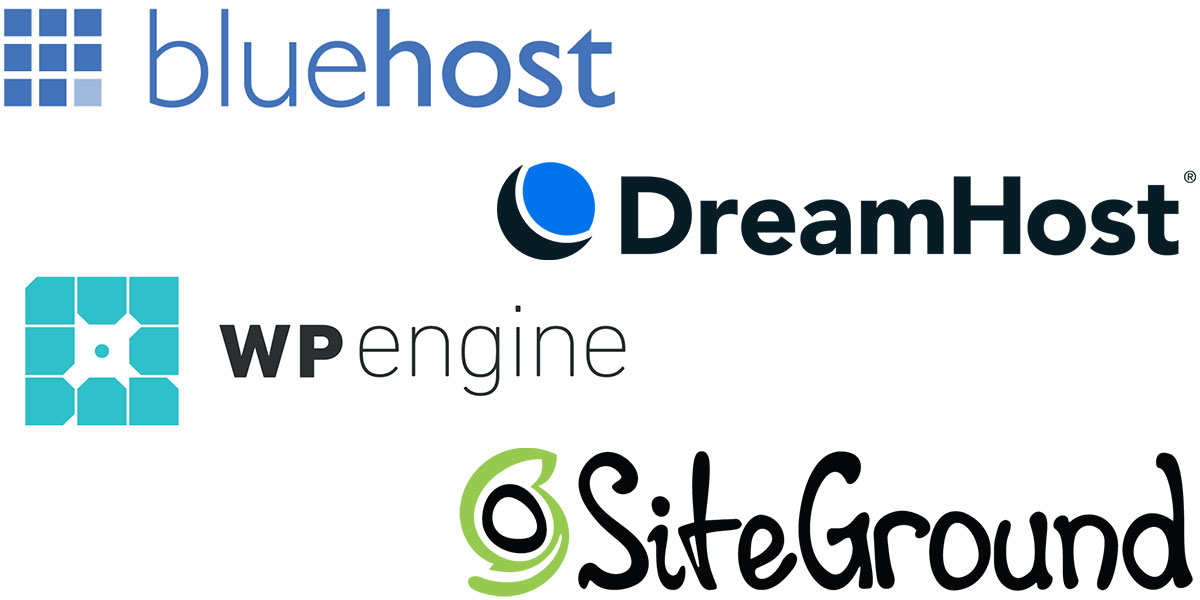15 May How to Choose the Right Web Host for WordPress Websites
Let me start by saying that a web host will never be able to give you a 100% satisfaction guarantee. Between the ongoing development and improvement of technology and the threat of hackers and malware, every host is constantly playing catch-up. The important thing to pay attention to is which web hosts are always on their toes.
With that said, let’s dive in.

First Things First
WordPress is a resource-hungry and, at times, bulky piece of code. Because of this, my first suggestion is to choose a host that only accommodates WordPress hosting. I’m not saying that hosts can’t host WordPress sites along with sites built on other development platforms, but if your web host focuses solely on WordPress, you stand a better chance of having a digital landlord that spends their time keeping up with the “WordPressians.”
There are some exceptions to this rule — for example, Bluehost — but I find those to be rare. If you do want to check out web hosts that accomodate a multitude of technologies (including WordPress), take a look at their list of services provided, as well as their blogs and updates. That will give you a good indication of how much time and effort they put into their WordPress server management and upkeep.
Second: Features
There are a few key features/services that solid WordPress hosts should provide. Some web hosts offer them as additional add-on features to make you think you’re saving money because it allows them to offer base hosting at a lower rate, but these features are critical and should absolutely be bundled into your hosting package. They are a “must” for all WordPress sites and need to be standard rather than optional.
These features include: daily backups, a Content Distribution Network (CDN), a cache system (to improve how fast your site loads), a staging or development platform (so you can build or tweak your site without affecting your live site – note that you should be able to publish your changes with a single click), easy migration to and from the web host, the most current version of PHP or the means to be able to update PHP on your own, and easy SFTP/FTP/database access. None of these should be optional or extra “paid for” add-ons.
Third: Security
Let’s face it, if a presidential election, the Pentagon, and your credit reporting agency can be hacked, you’d be foolish to think your website is safe. Website security is a must. Your web host should include malware scanning as part of its standard services, along with the ability to do a deeper scan and fix malware issues if needed. They should provide easy installation of SSL certificates, and (if you’re lucky) they might provide a free SSL certificate for each website they host for you.
Check to see whether Disk Write Protection/Limitation is offered as a service. This limits scripts on your website from being able to edit or modify other files, which deters hackers or malware from being able to control your site. The web host should also provide a routinelycurated list of plug-ins that are disallowed for having known security issues. Additionally, the web host should automatically block or flag any of these suspect plug-ins, should you try to install them. Lastly, your host should have a cap on the number of sites they host on each server. This is a statistic you can easily research, but it won’t hurt to ask them if they do have a policy of capping the number of sites per server.
Fourth: Support
Support is big issue. If we’re being totally honest, while we all hate not having a phone number to call and plead for help, vent, or chat about what our cats made us do to our websites, we also really hate getting the outsourced rep on the phone who follows a script rather than listening and actually thinking about how to solve our problem without dropping us into transfer call purgatory.
Absent tech support from an actual technician, 24/7 chat support is what you should look for. Forget the email or ticket system — chat support is the best thing next to getting a live person to talk to. When is comes to support, look to see if the web host provides local-based phone tech support or 24/7 chat. A web host gets extra brownie points if they have a forum where you can research past issues people have had with WordPress that are not related to server issues.
Fifth (and Last): Cost
I raise cost last because it is a huge factor for most individuals and small businesses, especially start-ups. This is something you should consider very carefully: Don’t choose a web host based solely on cost. Consider how you choose your cup of to-go coffee… I’m not suggesting that you choose the highfalutin, fancy-named uber expensive venti-cara-pumpkin-spice-avocado-kale-achi-whatever, just because you think it must be the best. I also don’t suggest you grab a 50 cent cup o’ joe from the guy with the street cart who looks like he hasn’t had a bath in years.
This same common sense applies to picking a web host. Look for reviews. Check WordPress.org for their list of recommended web hosts. Have a conversation with your web developers about your needs and ask for their suggestions, and after that, make a decision based on both what you’ve researched and the professional advice you’ve received.
In the End
If you take all of these things into consideration, you should be able to pick a web host that won’t cause you to lose sleep at night once your WordPress website goes live. And if you’re still confused, just reach out your friendly neighborhood web slinger (developer) for more advice. Hopefully, they’re still around after the snap*.
* Obligatory über-geek Marvel reference.

